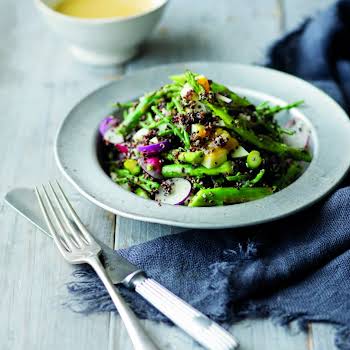
By Jennifer McShane
12th Dec 2019
12th Dec 2019
At-risk groups are being urged to get vaccinated against the flu as the latest figures from the HSE have revealed that the disease is “actively circulating” in Ireland.
HPSC director, Dr John Cuddihy said people in high-risk groups need to get vaccinated against flu if they have not done so already.
“The ILI (influenza-like illness) rate for the week ending December 8th was 37.5 cases per 100,000 population which is above the baseline threshold of 18.1 cases per 100,000 used to assess influenza activity.
“The symptoms of influenza usually develop over a matter of a few hours and include a high temperature, sore muscles, dry cough, headache and sore throat. This is different from the common cold, which tends to come on more gradually and usually includes a runny nose and a normal temperature.”
Who should get the flu vaccination?
While everyone should consider getting the vaccination, it’s especially important for specific at-risk groups, including those over 65, people with impaired immune systems, those with a BMI over 40, pregnant women, healthcare workers and carers, cancer patients and those with disabilities. The HSE strongly urges the following at-risk groups to get vaccinated, especially if you are:
- 65 years of age and over
- pregnant
- a child or adult with a long-term health condition
- work in healthcare
- are a carer or household contact of anyone at increased medical risk of flu
- live in a nursing home or other long-term care facility
“Anyone who gets flu should stay at home, rest, drink plenty of fluids and use over-the-counter remedies like Paracetamol to ease symptoms.
“Equally, anyone in one of the at-risk groups who develops flu symptoms or anyone who is not in an at-risk group, but whose flu symptoms are severe or getting worse, should contact their GP,” he advised.
Stop the spread of flu
Covering your cough and sneeze can also help stop the spread of flu.
*Use a tissue and place it immediately in the bin. Wash your hands or use a hand sanitizer.
*If you don’t have a tissue, cough or sneeze into your upper sleeve.
*Don’t cough or sneeze into your hands. You’ll end up spreading germs to everything you touch.”
Main photograph: Unsplash























